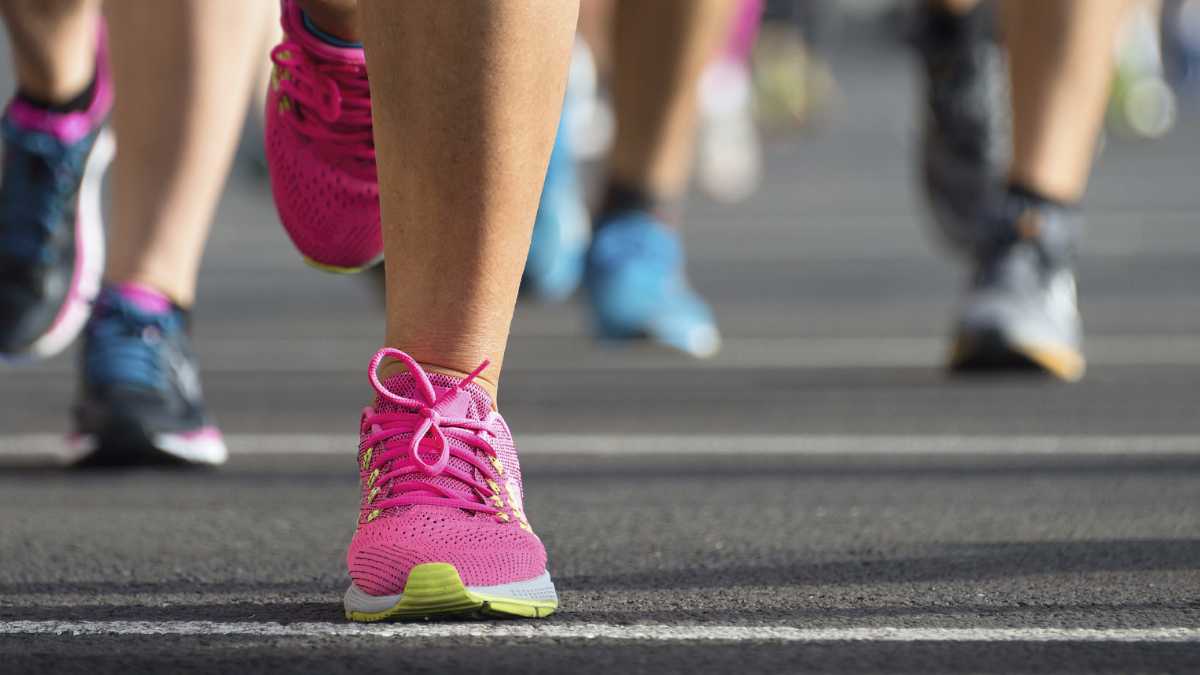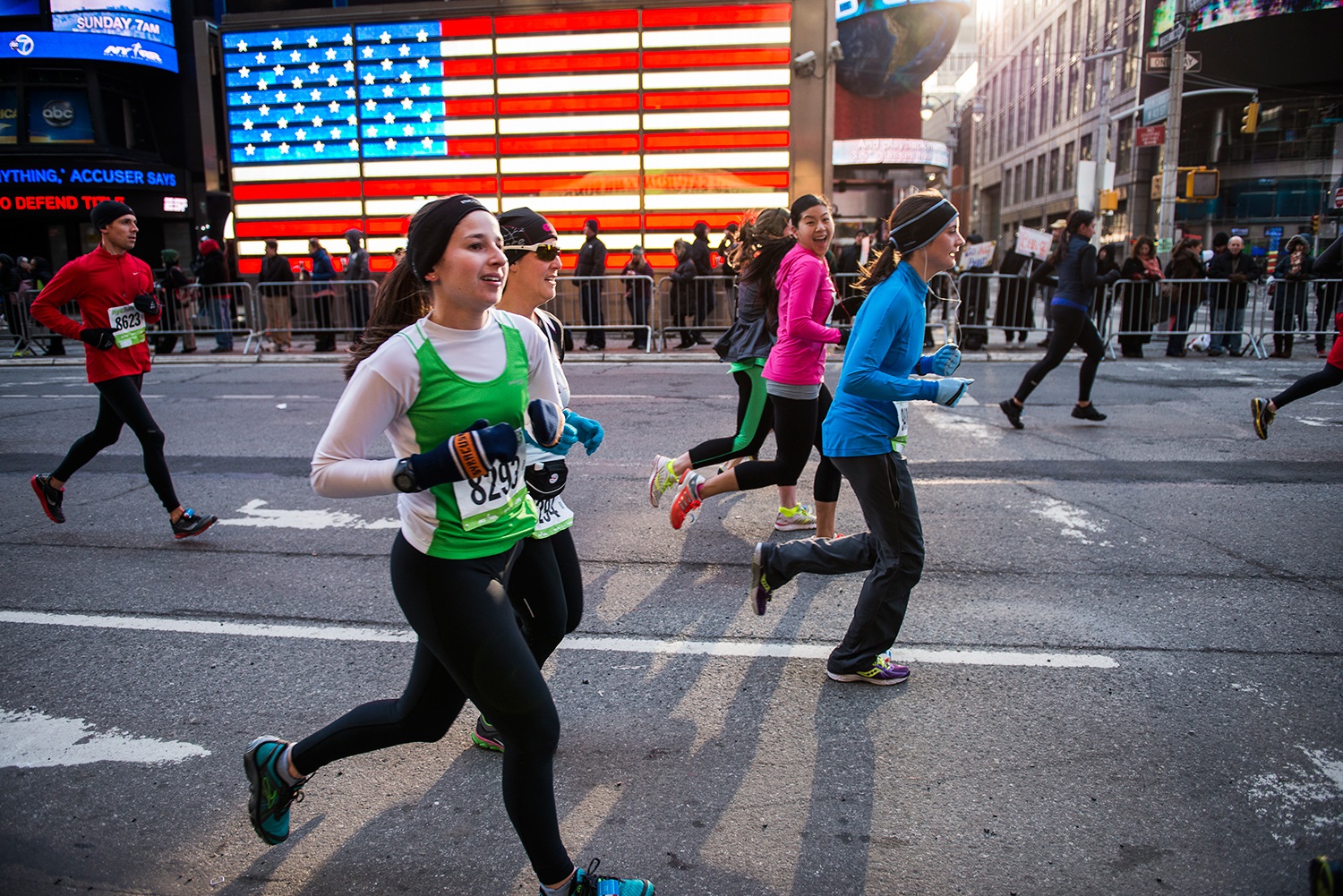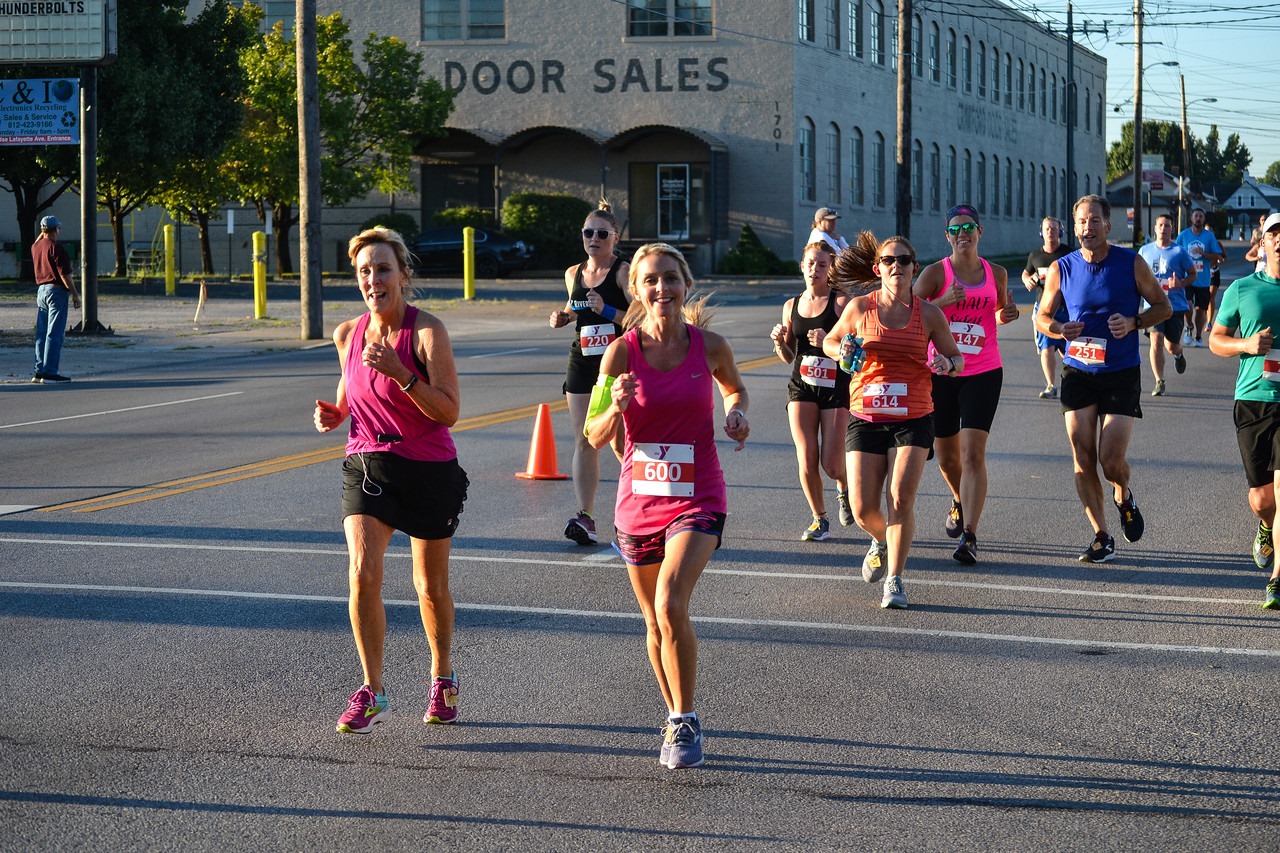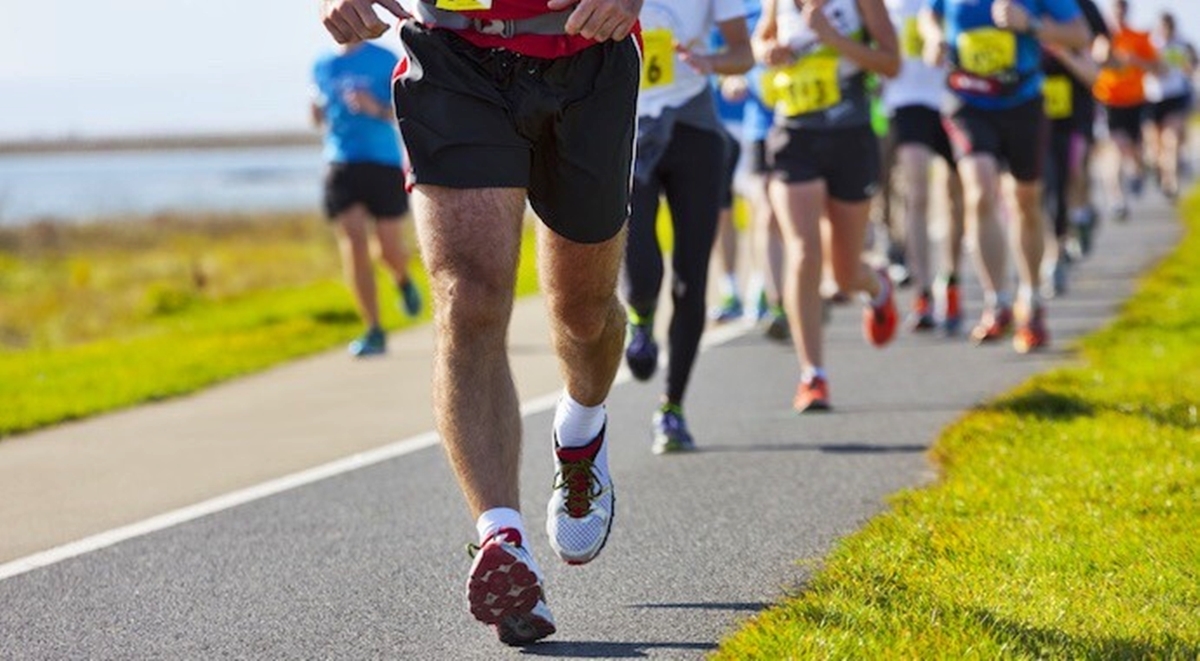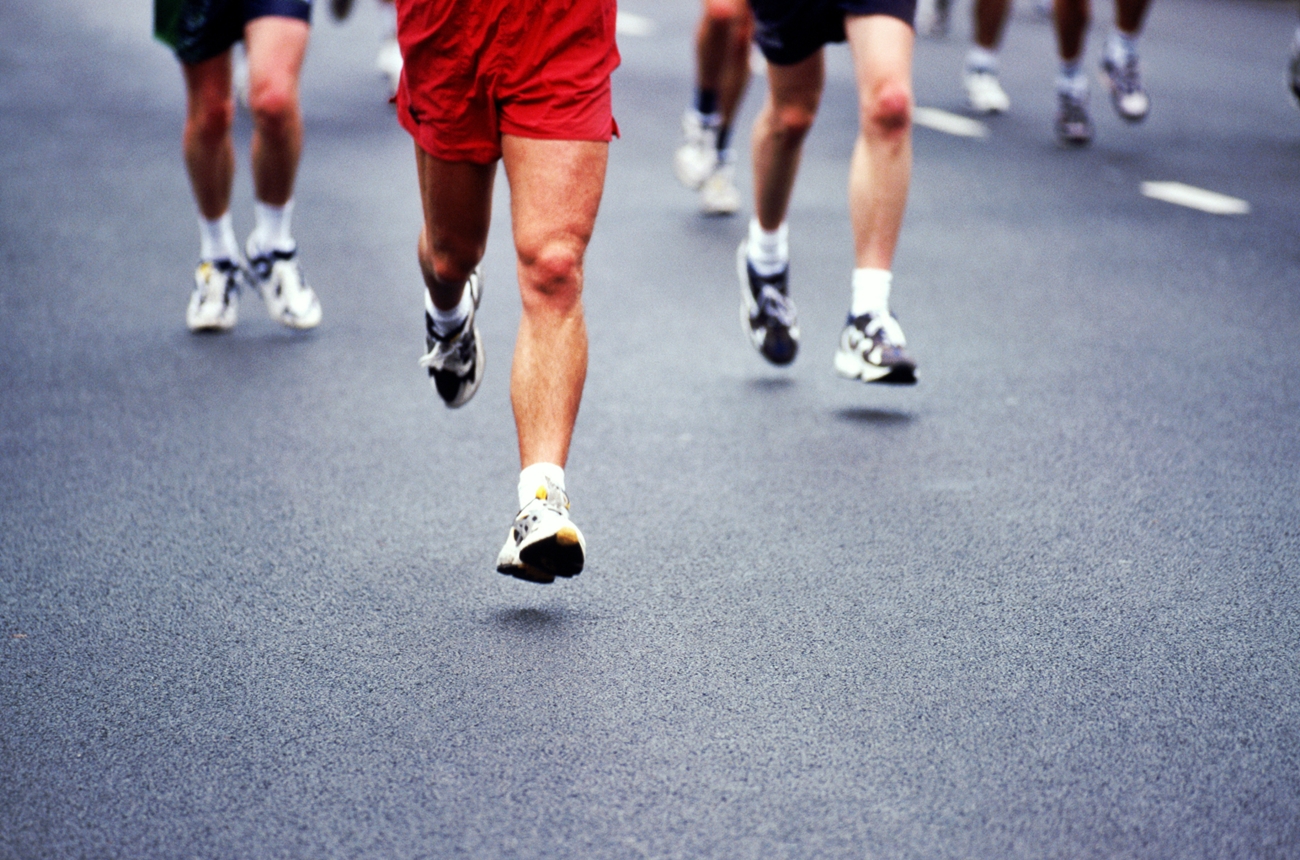

Featured
What Pace Is 2:21:58 For A Half Marathon
Modified: January 22, 2024
Discover what pace is required to achieve a remarkable time of 2:21:58 for a half marathon. Read our featured article for valuable insights and tips.
Introduction
A half marathon is a popular distance for runners, offering a challenging yet achievable goal. Completing a half marathon requires not only physical stamina but also mental determination. One of the key factors to consider for a half marathon is the pace at which you run. The pace is usually measured in terms of time per mile or kilometer, and it plays a crucial role in determining your overall performance.
In this article, we will delve into the significance of a 2:21:58 half marathon pace. This specific time represents an impressive achievement for many runners, as it requires consistent training and dedication. Whether you are a seasoned runner aiming to improve your performance or a beginner considering your first half marathon, understanding what this pace entails can provide valuable insights.
While the 2:21:58 time might seem daunting to some, it is important to remember that every runner has their own unique abilities and goals. The most important aspect is setting realistic targets and working towards them at a pace that is both challenging and sustainable for you.
Throughout this article, we will explore the factors that influence a half marathon pace, examine the training required to achieve a 2:21:58 time, and provide useful tips for improving your performance. Whether you are aiming for a specific time or simply looking to enjoy the journey, this guide will equip you with the knowledge and strategies to make the most of your half marathon experience. So, let’s lace up our running shoes and dive into the fascinating world of half marathon pacing!
Understanding the time for a half marathon
When it comes to a half marathon, understanding the time it takes to complete the race is crucial for setting realistic goals and measuring your progress. The time is typically measured in hours, minutes, and seconds, with the fastest runners completing the distance in under an hour and the average runners taking between one and three hours.
A 2:21:58 half marathon time can be quite impressive and falls on the faster end of the spectrum. It represents an average pace of around 10 minutes and 52 seconds per mile or 6 minutes and 45 seconds per kilometer. This means that each mile must be completed in approximately 10 minutes and 52 seconds or each kilometer in 6 minutes and 45 seconds to achieve a 2:21:58 finish time.
It’s important to note that a 2:21:58 time is not a universally optimal pace for all runners. Factors such as age, fitness level, experience, and personal goals all play a role in determining the desired time for each individual. Some runners may strive for a sub-2 hour time, while others may be pleased with a sub-3 hour finish. The key is to understand and respect your own abilities, setting goals that are challenging yet attainable.
Furthermore, it’s essential to consider the terrain and elevation of the race course. A flat, paved route will generally allow for a faster pace, while hilly or uneven terrain may slow down your pace. Be sure to research the course of the specific event you plan to participate in, as it will greatly impact your time expectations.
Understanding the time for a half marathon goes beyond simply looking at the numbers. It’s about understanding the effort and dedication required to maintain a consistent pace throughout the race. It’s about appreciating the journey and pushing yourself to reach new personal bests.
As we move forward, we will delve into the various factors that influence your pace in a half marathon. From training strategies to mental preparation, these elements all contribute to achieving a 2:21:58 half marathon time. So, let’s explore these factors in greater detail and equip ourselves with the knowledge and tools to reach our running goals!
Factors affecting the pace for a half marathon
The pace at which you run a half marathon can be influenced by various factors, both internal and external. Understanding these factors is essential for improving your performance and achieving your desired time. Let’s dive into some of the key factors that can affect your pace:
- Training and fitness level: Your training regimen and overall fitness level play a significant role in determining your half marathon pace. The more consistently you train and the more mileage you accumulate, the stronger and faster you will become. Regular speed work, long runs, and cross-training can help improve your endurance and speed, leading to a faster pace on race day.
- Course terrain: The terrain of the course can have a significant impact on your pace. A flat and smooth course allows for a faster pace compared to a hilly or uneven terrain. If you have the opportunity, try to train on similar terrain to the race course to familiarize yourself with the challenges it presents and adjust your pace accordingly.
- Weather conditions: The weather conditions on race day can greatly affect your pace. Running in high temperatures, humidity, or strong winds can make it more challenging to maintain a fast pace. It’s important to adapt your strategy and pace based on the weather conditions, staying hydrated and adjusting your effort level as needed.
- Mental focus and race strategy: Your mental state and race strategy can impact your pace. Maintaining a positive mindset, staying focused, and having a clearly defined race strategy can help you stay on track and maintain a consistent pace throughout the half marathon. Breaking the race into smaller segments and setting mini-goals can also contribute to a more even and efficient pace.
- Nutrition and hydration: Proper nutrition and hydration before, during, and after the race are crucial for maintaining a steady pace. Dehydration or inadequate fueling can lead to fatigue and a slowdown in pace. It’s important to properly hydrate leading up to the race and consume appropriate carbohydrates to fuel your body for optimal performance.
- Rest and recovery: Giving your body enough time to rest and recover is essential for optimal performance. Overtraining or not getting enough rest can lead to fatigue and an inability to maintain your desired pace. Incorporating rest days and a well-rounded recovery routine into your training plan can help prevent burnout and keep your pace consistent.
Keep in mind that these factors can interact with each other and vary from person to person. It’s important to listen to your body, understand your own limits, and make adjustments accordingly. By considering these factors and incorporating them into your training and race strategy, you can optimize your pace and strive for a 2:21:58 half marathon or any other desired time.
Training for a 2:21:58 half marathon
Training for a 2:21:58 half marathon requires a well-structured plan that combines endurance, speed, and strength training. Here are some key elements to consider when preparing for a half marathon at this pace:
- Build a solid base: Prior to starting specific half marathon training, it’s important to have a solid running base. Gradually increase your weekly mileage, focusing on easy runs to build endurance. Aim for at least a few months of consistent running before diving into more intense training.
- Long runs: Incorporate weekly long runs into your training plan to build endurance and get your body used to running for an extended period. Start with a distance that is comfortable for you and gradually increase the mileage over time. Aim to complete at least one or two runs that cover the full half marathon distance during your training.
- Speed work: To improve your pace, incorporate speed work into your training. This can include intervals, tempo runs, and fartleks. These workouts help improve your speed, efficiency, and ability to sustain a faster pace for longer periods. Gradually increase the intensity and duration of your speed work as your fitness improves.
- Strength training: Don’t neglect strength training when preparing for a half marathon. Include exercises that target your leg muscles, core, and upper body. Strengthening these areas will improve your overall running efficiency and help prevent injuries. Aim for two to three strength training sessions per week.
- Mental preparation: Half marathons are not just a physical challenge; they require mental strength as well. Practice mental strategies such as visualization, positive affirmations, and staying present during your long runs and tough workouts. This mental preparation will help you stay focused, motivated, and confident on race day.
- Tapering: In the weeks leading up to your half marathon, incorporate a tapering period into your training plan. Reduce mileage and intensity to allow your body to recover and be fully rested for race day. This will help ensure you are in peak condition for a strong performance.
Remember, everyone’s training journey is different, so it’s important to personalize your plan based on your fitness level and individual needs. Listen to your body, be mindful of any discomfort or injuries, and make adjustments as necessary. Consistency and gradual progression are key in achieving your goal of completing a half marathon in 2:21:58.
By following a well-rounded training plan and staying committed to your goals, you’ll be well on your way to a successful half marathon at your desired pace. Keep pushing yourself, stay motivated, and trust in the process. With dedication and perseverance, you can achieve anything you set your mind to!
Tips for improving your half marathon pace
If you’re looking to improve your half marathon pace and achieve a 2:21:58 finish time or even better, consider incorporating the following tips into your training and race strategy:
- Consistency is key: Consistency in your training is crucial for improving your pace. Stick to a well-structured training plan and strive to complete your scheduled workouts consistently. This will help build stamina and improve your overall fitness.
- Incorporate speed work: Implement regular speed work sessions into your training to increase your running speed and tempo. Intervals, hill repeats, and tempo runs can all enhance your running economy and help you run faster during the half marathon.
- Gradually increase training intensity: Gradually increase the intensity of your workouts over time to build your endurance and ability to sustain a faster pace. Avoid sudden increases in distance or intensity, as this can lead to injury or burnout.
- Practice race pace: Incorporate specific workouts where you run at your goal race pace. This will teach your body to adapt to and maintain the target pace, ensuring that you’re prepared for the demands of the race.
- Focus on strength training: Strength training is beneficial for runners, as it helps improve muscular endurance and overall running efficiency. Include exercises that target your legs, core, and upper body to develop a strong foundation and prevent fatigue during the race.
- Optimize your nutrition and hydration: Proper fueling and hydration are essential for maintaining your pace during a half marathon. Consume a well-balanced diet with adequate carbohydrates, proteins, and healthy fats. Practice fueling strategies during your long runs to find what works best for you, and stay hydrated leading up to and during the race.
- Work on mental toughness: A half marathon requires mental strength. Train your mind to stay focused and motivated, especially during challenging moments of the race. Visualize yourself achieving your desired pace and practice positive self-talk to conquer any doubts or negative thoughts.
- Practice good recovery habits: Proper recovery is vital for improving your pace and preventing injuries. Incorporate rest days into your training plan, foam roll or stretch regularly, and prioritize sleep for optimal recovery.
- Participate in shorter races: Incorporate shorter races, such as 5K or 10K events, into your training schedule. These races will not only provide great opportunities to practice your race pace but also give you the chance to gauge your progress and build race experience.
- Listen to your body: Pay attention to any signs of fatigue, pain, or overtraining. It’s important to rest and allow your body to recover when needed. Pushing through injuries or prolonged fatigue can hinder your progress and put your long-term goals at risk.
Remember, improving your half marathon pace takes time and dedication. Be patient with yourself, celebrate your progress along the way, and don’t compare yourself to others. Each runner has their own unique journey, and focusing on your own growth and achievements is key.
By implementing these tips into your training and staying committed to your goals, you’ll be well on your way to achieving your desired half marathon pace. Embrace the process, stay motivated, and trust in your abilities. You have what it takes to reach new levels of performance and make your half marathon experience an incredible one!
Conclusion
Completing a half marathon at a 2:21:58 pace is an admirable achievement that requires dedication, training, and mental fortitude. While this specific time may be a goal for some runners, it’s important to remember that every runner has their own unique abilities and aspirations. It’s crucial to set realistic and personal goals that align with your individual journey.
Throughout this article, we have explored the significance of a 2:21:58 half marathon pace and provided insights into the factors that can affect your pace. We’ve discussed the importance of consistent training, race strategy, nutrition, mental preparation, and recovery in improving your half marathon performance.
Remember, your half marathon journey is about more than just reaching a specific time. It’s about challenging yourself, discovering your limits, and finding joy in the process. Whether you’re a beginner or an experienced runner, the half marathon offers an opportunity for personal growth and accomplishment.
So lace up your running shoes, set your goals, and embark on your training with determination and enthusiasm. Embrace the highs and lows of your journey, listen to your body, and make adjustments when necessary. Celebrate each milestone and be proud of every step forward, knowing that you are constantly progressing towards your goals.
As you cross the finish line of your half marathon, whether it’s in 2:21:58 or any other time, remember to savor the moment and appreciate the hard work and dedication that brought you there. Cherish the sense of achievement and the memories created throughout your training and race day.
Your half marathon experience is what you make of it. Enjoy the camaraderie and support of fellow runners, be inspired by your own determination, and relish the exhilaration of pushing your limits. Whether you achieve your desired pace or not, know that you have accomplished something remarkable by taking on the challenge of a half marathon.
So, embrace the journey, believe in yourself, and keep striving for greatness. Whether it’s a 2:21:58 half marathon or any other personal goal, know that you have the ability to push boundaries and achieve greatness as a runner. Your pace is your own, and every step forward is a triumph worth celebrating.
